
James Overs
Research Assistant, Swinburne University of Technology
I am a Research Assistant based at Swinburne University of Technology, Melbourne, Australia, working for Associate Professor Simon Knowles. I recently completed my Bachelor of Psychological Sciences (Honours), exploring the factors which influence mental health outcomes for individuals with gastroparesis. I am passionate about promoting greater understanding and awareness of the mind-body connection and the importance of holistic approaches to health and mental health. I intend to undertake future study with the hope to improve the lives of those with chronic health and mental health issues.
Less ![]()
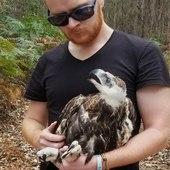
James Pay
Postdoctoral Research Fellow, School of Natural Sciences, University of Tasmania
Less ![]()
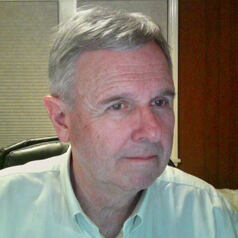
James Phillips
Research Associate Professor of Head and Neck Surgery and Director of UW Medicine’s Dizziness and Balance Center, University of Washington
James O. Phillips, Ph.D., is a UW research associate professor of Head and Neck Surgery, adjunct research associate professor of Speech and Hearing Services and director of UW Medicine’s Dizziness and Balance Center.
Dr. Phillips feels the UW provides an extraordinary environment for research, teaching and clinical practice where he can participate in translational research, study motor and sensory function in humans and use basic biological models. He also thinks it is pretty great that he can see patients in the clinic and teach undergraduates, graduate students and residents and collaborate with some of the finest researchers in the world.
Dr. Phillips earned his Ph.D. at the UW. He has an extensive research program that includes affiliations with the UW's Human Interface Technology Laboratory, the UW Autism Center, Virginia Merrill Bloedel Hearing Research Center, the Center for Integrative Brain Research at Children's Hospital and the Washington National Primate Research Center.
Less ![]()
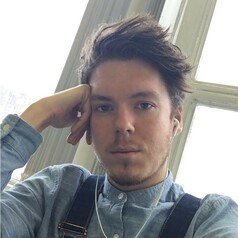
James Pickles
Senior Lecturer, University of Brighton
James Pickles is a Criminologist at the University of Brighton at the School of Humanities and Social Science. After undertaking a Masters of Research in Social Sciences, he completed his PhD at Northumbria University in 2018 through a funded studentship. James has published his work in well established international journals such as Policing & Society, Journal of LGBT Youth, Qualitative Research, and International Review of Victimology. Alongside publishing empirical data he has also published methodological commentaries on ethical research.
James' research focuses on violence against minority communities, specially anti-LGBT+ 'hate' crime. A former youth worker who has run several youth groups across the North East of England, he is particularly interested in how young people access support for their experiences of victimisation and violence.
Less ![]()

James Pikul
Associate Professor of Mechanical Engineering, University of Wisconsin-Madison
Less ![]()

James Renton
I am interested in racism, especially antisemitism and Islamophobia; Empire; and the genealogy of global politics. My research focuses on European ideas of the Jew, the Arab, and the West; post-secularism; British and French colonialism in the Jewish and Middle Eastern worlds; the First World War and its afterlives; the Zionist-Palestinian conflict; the League of Nations Mandate system; the West and the Middle East relationship; and the political public sphere in the colonial world after 1914.
My first book, The Zionist Masquerade: The Birth of the Anglo-Zionist Alliance, 1914-1918 (Palgrave Macmillan, 2007), was a new history of the Balfour Declaration. Placing the Declaration within the wider story of the global politics of race and nationalism in the Great War, the book put forward a new interpretation of its origins, purpose and significance.
I am currently writing a biography of the idea of the Middle East, for which I was awarded an Early Career Fellowship by the Arts and Humanities Research Council. With Ben Gidley (COMPAS, Oxford), I am also co-editing a book on antisemitism and Islamophobia in Europe, from the Crusades to the 21st century.
Outside of the academic world, I have written for Ha’aretz, openDemocracy, The Conversation, The Jewish Quarterly and Teaching History, and regularly give public talks. On television, I have featured in programmes including ‘Al-Nakba: The Debate’, which focused on the British role in the history of the Zionist-Palestinian conflict, ‘World War I through Arab Eyes- Episode 3: The New Middle East‘, and ‘The Grand Mufti’, a documentary about the Palestinian leader Muhammed Amin al-Husayni.
I am a committee member of the British Association for Jewish Studies, an Honorary Senior Research Associate in the Department of Hebrew and Jewish Studies at University College London, and a Fellow of the Royal Historical Society. I am also a member of the History & Policy Network, and the chair of ErRS: the Ethnicity, Race, and Racism Seminar at Edge Hill. In 2015, I organised the ErRS symposium ‘Islamophobia and Surveillance: Genealogies of a Global Order’.
Less ![]()
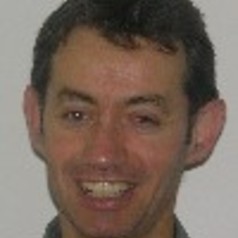
James Risbey
Researcher, Oceans and Atmosphere, CSIRO
James is a climatologist who has worked and published on climate variability and climate change issues in the US, the Netherlands, and Australia. His research is broadly concerned with the development and use of climate information for societal applications.
Less ![]()

James Rose
Director of the Institute for Smart Structures, University of Tennessee
James Rose AIA is director of the Institute for Smart Structures and a distinguished Lecturer and adjunct assistant professor of the University of Tennessee College of Architecture and Design. A faculty member since 2004, James is the recipient of numerous awards for his teaching and built work including an Architect Magazine R+D Award, an AIA Innovation in Technology Award, and recognition as a Design Intelligence Most Admired Educator. In addition, he has co-authored papers on building technology with colleagues at UT and Oak Ridge National Laboratory. James is an architect, educator and industrial designer with a keen interest in the intersection of material and process. His research and practice focus on sustainability, design/build education and the architectural implications of emerging technologies. Recent regional projects with global significance include the world’s first net-zero 3D printed polymer building with ORNL and SOM and a collaboration with Local Motors Industries focusing on parametric design and additive manufacturing at architectural scale.
Less ![]()
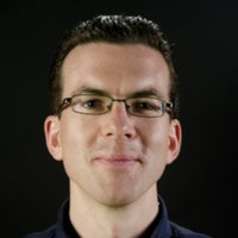
James Ryan
Senior Lecturer in Modern European (Russian) History, Cardiff University
I am a history of modern Russia and the Soviet Union, focusing on the relationship between Leninist ideology and political violence, and the intellectual history of Soviet state violence. I am the author of a monograph on violence in Lenin's political thought (Routledge, 2012), and I have published articles in academic journals such as Slavic Review and Historical Research.
Less ![]()
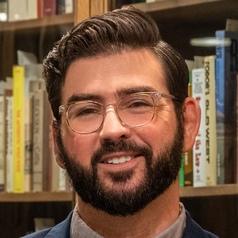
James Sandy
Assistant Professor of History, University of Texas at Arlington
Dr. James Sandy received his PhD from Texas Tech University in 2016 and currently serves as an Assistant Professor in the Department of History & Geography where he teaches courses in military and cultural history and serves as Internship Director. He is also the director of the Texas Veteran Project, an oral history initiative meant to collect and preserve the stories of America's veterans.
Less ![]()
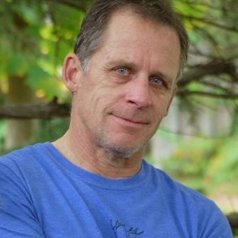
James Schaefer
Professor of Biology, Trent University
I have been Professor in the Department of Biology for nearly 25 years. Prior to my academic appointment, I served as Senior Wildlife Biologist with the Government of Newfoundland & Labrador.
I am a member of the International Boreal Conservation Science Panel, a Fellow with the Leopold Leadership Program, and the founding Director of the Trent Centre for Communicating Conservation.
Less ![]()
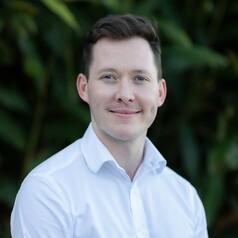
James Smallcombe
Post-doctoral Research Associate, University of Sydney
Dr James Smallcombe is a post-doctoral research fellow in Heat and Health Research Incubator in the Faculty of Medicine and Health at The University of Sydney. James leads several research projects aimed at increasing human resilience to extreme heat events. James’ main expertise is in paediatric thermoregulation and protecting vulnerable populations against the negative impacts of heat stress during day-to-day activities.
Less ![]()
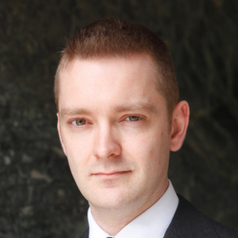
James Strong
Fellow in Foreign Policy Analysis and International Relations, London School of Economics and Political Science
I am a Fellow in Foreign Policy Analysis and International Relations at the London School of Economics and Political Science, where I completed my PhD in 2012. Prior to joining the IR Department faculty I spent one year as Executive Officer to LSE Director Professor Craig Calhoun.
My research looks at the domestic sources of democratic foreign policy, particularly the media and public opinion, and also at the foreign policy making process in contemporary Britain. I am presently working on papers looking at parliament's war powers in light of Iraq, Libya, and Syria, and the way media organisations in different states report statements by foreign leaders. I am also revising my PhD thesis, on British public debate prior to the Iraq war, for publication.
Less ![]()

James Stroud
Assistant Professor of Ecology and Evolution, Georgia Institute of Technology
James Stroud is an Assistant Professor in the School of Biological Sciences at Georgia Tech. His research focuses on understanding the ecological and evolutionary processes responsible for driving patterns of biodiversity across space and time. To do that, his lab studies the evolutionary ecology of lizards: a fascinating and hyper-diverse group of organisms. The lab's approach is highly multidisciplinary, integrating ecology, evolution, behavior, physiology, biomechanics, and natural history.
Less ![]()
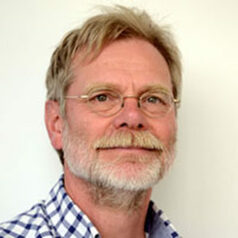
James Sumberg
Emeritus Research Fellow, Institute of Development Studies
James Sumberg is an Emeritus Research Fellow at IDS. An agriculturalist by training, he spent most of his career studying small-scale agriculture in sub-Saharan Africa, and particularly West Africa. Before joining IDS in 2009, he worked at the University of East Anglia, The New Economics Foundation, an international NGO in West Africa and three international agricultural research institutes. Since 2009 his research has focused on young people in rural Africa. He has published widely on technological change, policy and youth employment.
Less ![]()
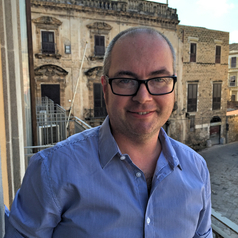
James Sweeney
Prof. James A. Sweeney's research is about the after-effects of conflict: principally human rights in transitional democracies, and the rights of refugees. His monograph, 'The European Court of Human Rights in the post-Cold War Era: Universality in Transition' was published in hardback by Routledge in November 2012, and in paperback in 2014. His work on the human rights of failed asylum seekers was cited by the House of Lords in the case of R (on the application of M) v Slough BC [2008] UKHL 52, by the Court of Appeal in R. (on the application of SL) v Westminster City Council [2011] EWCA Civ 954, and most recently in R. (on the application of Refugee Action) v Secretary of State for the Home Department [2014] EWHC 1033 (Admin). In the latter case Home Secretary Theresa May was found to have acted irrationally by freezing the level of cash support to be provided to asylum seekers to meet their essential living needs, for the financial year 2013/14, at the rates which had applied since 2011.
Prof. Sweeney has acted as an expert advisor to the Council of Europe in relation to freedom of assembly projects in Armenia, Azerbaijan (with the Venice Commission), Georgia, and Kosovo. In March 2011 he delivered human rights legal training to judges of the Ukrainian Supreme Court as part of a UK Foreign and Commonwealth Office project. Likewise in 2013 and 2014 he convened a series of workshops on human rights and judicial interpretation for the Constitutional and Supreme Courts of Kosovo, on behalf of the FCO. Throughout 2009 he acted as an expert advisor to the EU's Committee of the Regions as it prepared its Opinion on reforms to the Common European Asylum System.
Prof. Sweeney joined Lancaster University Law School in 2013. Prior to that, he has worked at Durham, Newcastle and Hull. From 2011-2013 he was Deputy Director of Durham Global Security Institute.
Less ![]()
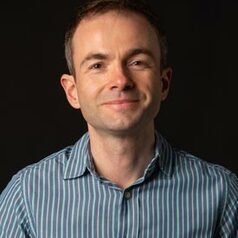
James Taylor
Senior Lecturer in History, Lancaster University
I am a historian at Lancaster University. My work explores the cultural, political, and legal dimensions of economic change in Britain since the 1700s. I have published on subjects ranging from the early history of corporate governance and the regulation of commercial fraud, to the history of the financial press and cultural attitudes to advertising. My current research has two strands. The first explores gender and financial markets, focusing on the neglected history of women stockbrokers in the century before they were admitted to the London Stock Exchange in 1973. The second examines the financialisation of everyday life in Britain since 1850. Concentrating on ordinary people and everyday experiences, rather than financial elites and ideologies, it seeks to provide a history of finance 'from below'. It is particularly interested in the spatial, material, and emotional dimensions of people's experiences of finance.
Less ![]()

James Thaventhiran
MRC Investigator, University of Cambridge
I am an academic clinical immunologist, who looks after patients with immunodeficiency and runs a research laboratory that investigates how to optimally use vaccines to protect vulnerable people.
Less ![]()
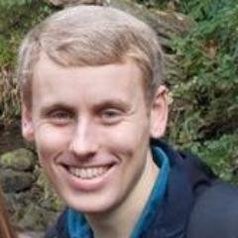
James Tompkinson
PhD Linguistics (Forensic Speech Science), University of York
I am currently working towards a PhD at the University of York. My main research interests are in Forensic Speech Science, Phonetics and Language Variation and Change. My current research focuses on threats as language crimes, and how different aspects of voice may cause listener's to infer greater or lesser levels of threat in a speaker.
Less ![]()
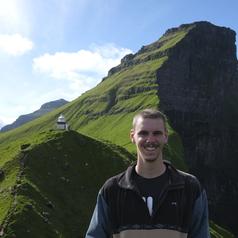
James Vandersteen
PhD Student, UNSW Sydney
I am a PhD student at The University of New South Wales (UNSW). For my doctoral research I am investigating the role of dingoes as apex predators in the Australian Alps, with a focus on how anthropogenic control of their populations affects ecosystem structure and functioning in alpine environments.
Past work that I have been involved in has included scavenging ecology, the impacts of light pollution, recovery of critically endangered species, and beach/coastal ecology.
I am also keenly interested in predator ecology, human-wildlife conflict, and ecology and conservation biology in the context of sustainable development, especially in agricultural settings and in developing nations.
Less ![]()
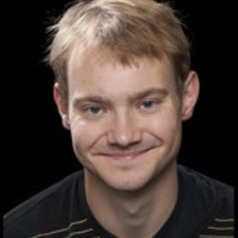
James Walker2
Archaeological Research Assistant, University of Bradford
I am a postdoctoral researcher on the European Research Council funded Europe's Lost Frontiers project, working with Prof. Vince Gaffney and colleagues on the archaeological aspects of a project aimed at discovering more about the lost, submerged prehistoric landscape of Doggerland - now the base of the North Sea.
My main research focus is on the investigation of archaeological materials and cultural heritage that lay under water. In particular, my interests lie in the landscapes as they evolved from the final Pleistocene into the mid-late Holocene. These landscapes would have certainly been of immense importance to prehistoric peoples, and yet they remain one of the most poorly understood places from our past. Many of archaeology's biggest questions depend upon data that lies upon the seabed, and the ELF project leads the way in exploring their archaeological potential.
Other Research Interests: In addition to my role as a Mesolithic/Neolithic specialist, I have broad array of interests pertaining to many aspects of hunter-gatherer society and hominin evolution. These include, means of cultural adaptation to environmental variation, subsistence strategies, migration events, mid-later period hominin evolution and cognitive development, ethnoarchaeology, the transition to farming, and the history of prehistory, among other topics.
Less ![]()
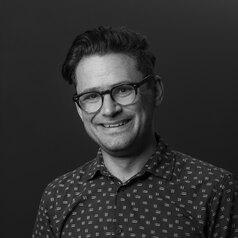
James Wallace
Lecturer in Management, Employment and Organisation, Cardiff Business School, Cardiff University
James is a lecturer within the Management, Employment and Organisation subject group at Cardiff Business School.
Broadly speaking, James' research interests relate to critical management and organisation studies, particularly regarding issues such as power and identity in the workplace. More specifically, he is interested in the issue of wellbeing in the workplace. He has recently been interested in thinking about how critical approaches to wellbeing may lead to arguments for alternative forms of organisation.
James completed his PhD at Cardiff University in 2019. His thesis looked at workplace wellbeing programmes in terms of the power relations between employer and employee, considering what it means to be sick or healthy within the workplace. Since completing my thesis he have been working on publications relating to this research.
Less ![]()
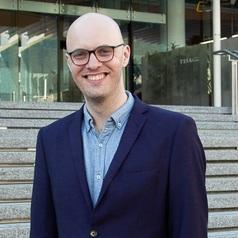
James Wenley
Lecturer, Theatre Programme, Te Herenga Waka — Victoria University of Wellington
James Wenley is a Pākehā theatre academic, practitioner and critic. James was awarded a PhD from the University of Auckland and is a Lecturer in the Theatre programme of Te Herenga Waka Victoria University of Wellington. James makes theatre under his company Theatre of Love, and is the editor and founder of TheatreScenes.co.nz, a platform for reviews and commentary on Aotearoa theatre. His book, Aotearoa New Zealand Theatre in the Global Theatre Marketplace: Travelling Theatre (2021), is published by Routledge.
Less ![]()
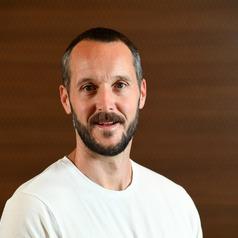
James White
Chair professor, Cardiff University
I am a Professor and Deputy Director of Population Health Trials in the Centre for Trials Research and DECIPHer (Centre for Development, Evaluation, Complexity and Implementation in Public Health Improvement) in Cardiff University, and have an honorary contract at the University of Bristol. The focus of my research is to understand how social, psychological, biological, behavioural and genetic factors from across the life course, influence behaviours which effect health and chronic diseases of major public health importance: cardiovascular disease and mental illness. The ultimate aim of this body of research is disease prevention.
Less ![]()
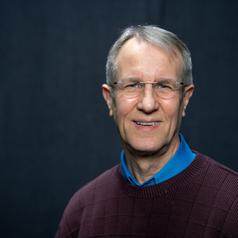
James Wittebols
Professor of Political Science, University of Windsor
I am a sociologist teaching politics, communication and culture in a political science dept. Study news media and politics and information literacy.
Less ![]()
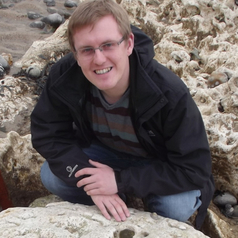
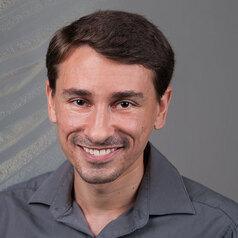
James Wray
Professor of Earth and Atmospheric Sciences, Georgia Institute of Technology
Dr. Wray is a planetary scientist who joined the faculty at Georgia Tech in 2011. His research uses space mission data to study planetary surface processes and compositions. He has been a member of six different NASA or ESA Mars mission science teams, and previously served as Chair of the Geological Society of America's Planetary Geology Division.
Less ![]()
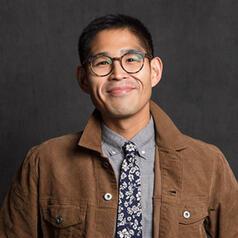
James Zarsadiaz
Associate Professor of History, University of San Francisco
James Zarsadiaz is Associate Professor of History and Director of the Yuchengco Philippine Studies Program. He specializes in urban and suburban history, Asian American history, and the twentieth-century United States. Prof. Zarsadiaz was a fellow at both the Smithsonian Institution's National Museum of American History and Asian Pacific American Center. Prior to entering academia, James worked in the U.S. House of Representatives.
He is the author of Resisting Change in Suburbia: Asian Immigrants and Frontier Nostalgia in L.A. (University of California Press, 2022). Prof. Zarsadiaz's research articles include: "Design Assimilation in Suburbia: Asian Americans, Built Landscapes, and Suburban Advantage in Los Angeles's San Gabriel Valley since 1970" (co-authored with Becky Nicolaides), which won the Urban History Association's Arnold Hirsch Award and the Vernacular Architecture Forum's Catherine W. Bishir Prize; "Raising Hell in the Heartland: Filipino Chicago and the Anti-Martial Law Movement, 1972- 1986," which received an Honorable Mention from the Filipino Section of the Association for Asian American Studies; and "Methodists against Martial Law: Filipino Chicagoans and the Church's Role in a Global Crusade." James has also published work in Amerasia Journal, International Migration Review, Journal of Asian American Studies, Journal of Social History, New Jersey Studies, and Pacific Historical Review, as well as for media outlets including City Lab, Los Angeles Times, San Francisco Chronicle, and Washington Post. He has done live interviews on ABC, BBC, CBS, MSNBC, NBC, NPR, and Southern California Public Radio regarding current affairs and his research.
Less ![]()
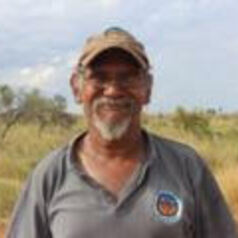
James (Frankie) McCarthy
Ngurrara Traditional Owner and Database Officer, Yanunijarra Aboriginal Corporation, Indigenous Knowledge
Frankie is a Yanunijarra Traditional Owner, with over 10 year experience in the Ngurrara ranger program working on Country, including as a Head Ranger, a Ranger Coordinator, and for the last 3 years as the Database Officer.
Less ![]()
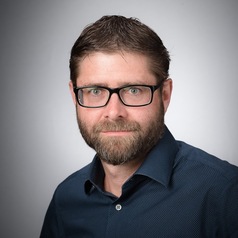
James (Jim) S. Cotton
Professor, Department of Mechanical Engineering, McMaster University
Dr. James Cotton is a Professor in the Department of Mechanical Engineering at McMaster University and the Co-Director of the McMaster Institute for Energy Studies (MIES). He obtained his PhD in Mechanical engineering from McMaster University in 2000. From 2000-2007 he worked at Dana Corporation, Thermal Products, Ontario. During his tenure in the automotive industry his focus was on automotive power plant and fuel cell thermal management and emission system modeling, design and control. He was the supervisor of the Heat Transfer Research team providing research and development leadership by determining vision, strategy and goals for automotive energy systems and heat transfer related activities for the Division.
Upon joining McMaster he has focused his research leadership towards thermal management, system modeling, energy harvesting in the emerging fields of thermal energy recovery, storage and electrohydrodynamics. His research focuses on developing, modeling and experimentally validating energy systems and technologies to advance safe and efficient thermal management solutions, integrated community energy systems, energy harvesting technologies and automotive thermal management technologies. Dr. Cotton’s research and industry experience involves nearly all aspects of the energy network, ranging from improving hybrid and electric vehicle performance, integrated community energy systems and waste heat recovery from commercial and industrial processes. Over the past six years Dr. Cotton has liaised with a wide variety of communities and industrial partners to establish community energy plans, to identify problems facing industry, develop technology road maps to address these challenges and lead comprehensive research programs to provide sustainable energy and transportation solutions. This research includes a $2M cooperative project led by Dr Cotton that unites 20 Industry Partners who are working together to design, optimize and commercialize the Integrated Community Energy and Harvesting System (ICE-Harvest), a distributed energy resource management system. The research with these partners led Cotton to design and develop the $5.5M Research Facility for Integrated Building Energy Harvesting Systems (ReFIBES) and the formation of a 22 partner Energy Research Cooperative, with the aim of meeting their communities’ GHG reduction goals. The facility includes integrating bidirectional and unidirectional charging stations and a bidirectional vehicle, synergistically working with the distributed energy resources to provide resilient carbon-free heating, while being demand responsive to the electrical grid.
Dr Cotton has authored/co-authored over 110 peer reviewed journal and conference papers, has 4 granted patents and one pending. During the past six years he has trained over 75 graduate students and researchers. He is a Fellow of the American Society of Mechanical Engineers, the Principal of a consulting company ThERM Solutions and founder and CEO of HARvEST Systems Inc., a spin-off company that commercialized novel energy harvesting systems for restaurants.
Less ![]()
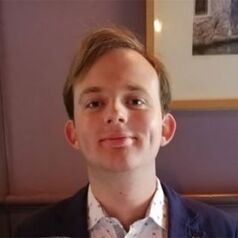
James A. King
Research Associate in Climate Change Mitigation, University of Sheffield
2016: BA (Hons) Geography, University of Oxford
2021: DPhil (PhD) Geography and the Environment, University of Oxford
Less ![]()

James A. McCann
Professor of Political Science, Purdue University
Short bio sketch:
James A. McCann is a Professor of Political Science at Purdue University in West Lafayette, IN. Originally from the Chicago area, he earned a BA at Illinois State University with the support of an Illinois General Assembly Scholarship. He did his doctoral studies at the University of Colorado-Boulder and had a two-year “pre-doc” appointment at the Government Data Center at Harvard University before joining the faculty at Purdue. McCann conducts research and teaches courses on public opinion, campaigns, and representation in the United States and abroad, particularly Latin America. Much of his current work focuses on the political incorporation of immigrants. He has coauthored three books and published articles in many academic journals, including the American Political Science Review, the Journal of Politics, the American Journal of Political Science, the British Journal of Politics, and the Latin American Research Review. With Michael Jones-Correa, McCann is a principal investigator of the 2012 and 2016-17 Latino Immigrant National Election Studies (LINES). His research has been supported by the US National Science Foundation, the Russell Sage Foundation, the Carnegie Corporation of New York, and the US Fulbright Program. He has held Visiting Scholar appointments at the Russell Sage Foundation, the Brookings Institution, the Catholic University of America, and Carleton University. In 2000, McCann was an official observer of the Mexican presidential election.
Less ![]()

James A. Shepperd
Professor of Psychology, University of Florida
My research expertise is in the area of Self and Self-processes. I am particularly interested in people’s expectations about the future and how expectations persevere and change in the face of challenging information. I also explore how people respond when they receive challenging information. Most of my research focuses on three areas: 1) optimism, risk perceptions and behavior, 2) fluctuations in future outlooks, and 3) maintaining desired self-views. However, I also have an interest in psychological approaches to gun policy positions.
Less ![]()
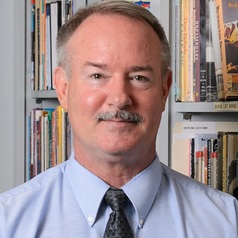
James B. Blasingame
Professor of English, Arizona State University
After 24 years as a high school teacher, James Blasingame joined Arizona State University in 2000. He has served as ALAN President, ALAN Executive Director, co-editor of The ALAN Review, and editor of the “Books for Adolescents” pages of the Journal of Adult and Adolescent Literacy. He has authored or coauthored seven books, 100 interviews, and 300 book reviews. For 24 years, he drove a school bus in Iowa, and for one week, he drove a dog sled in Alaska with Gary Paulsen. In 2023 he was awarded the rank of President’s Professor at ASU. He is married to ballroom dance instructor, and former Miss Nevada, Lori Isom Blasingame.
Less ![]()
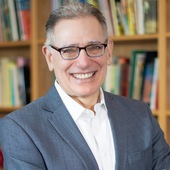
James B. Rebitzer
Wexler Professor of Management, Economics and Public Policy, Boston University
Less ![]()
- Market Data















